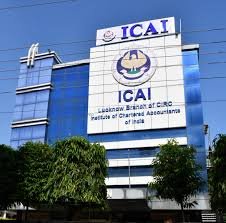In a move to enhance compliance, accountability, and quality of audits, the Institute of Chartered Accountants of India (ICAI) has issued a directive imposing a strict cap on the number of tax audits that each partner of a firm can undertake. The decision also bans chartered accountants from signing audit reports on behalf of other partners.
Key Provisions Under the New ICAI Directive
The latest ICAI guidelines, announced via a formal communication, restrict each partner to a maximum of 60 tax audits under Section 44AB of the Income Tax Act. This is a reinforcement of the existing limit but with a stronger enforcement mechanism and expanded scope. Most notably, partners are now explicitly barred from signing tax audit reports on behalf of fellow partners, a practice previously left to internal discretion in many CA firms.
The ICAI reiterated that the signature on audit reports must be by the partner who has directly conducted the audit work. This move is seen as a response to concerns raised over quality dilution and accountability lapses in high-volume audit practices.
“Each audit must reflect individual responsibility and due diligence,” the ICAI stated. The directive, applicable immediately, is also aimed at ensuring parity and fair distribution of workload among partners in multi-member CA firms.
Implications for the CA Fraternity and Audit Firms
The cap and signing rules are expected to prompt structural and operational changes in many CA firms, particularly mid-sized and large entities that have centralized their audit execution and reporting. By enforcing partner-specific responsibility, ICAI aims to prevent overburdening and the outsourcing of signature responsibilities, both of which are seen as threats to audit quality.
Industry experts believe the move is in line with global best practices and will encourage better work allocation and ethical compliance. However, it may also require some firms to reassign clients or limit their audit engagements per financial year.
ICAI has clarified that violations of this policy may attract disciplinary action, including professional misconduct charges under the Chartered Accountants Act, of 1949.
About the Author – Anirudh Mittal is a B.Sc. LL.B. (Hons.) student at National Forensic Sciences University, Gandhinagar, with a keen interest in corporate law and tech-driven legal change.


